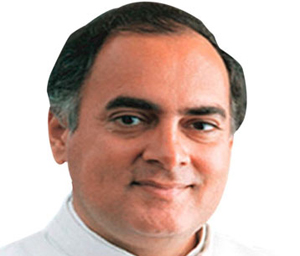![]()
 New Delhi, Feb 18: Supreme Court Tuesday commuted the death sentence to the three assassins of former prime minister Rajiv Gandhi to life imprisonment, holding that the 11-year long delay in deciding their mercy petition had a dehumanising effect on them.
New Delhi, Feb 18: Supreme Court Tuesday commuted the death sentence to the three assassins of former prime minister Rajiv Gandhi to life imprisonment, holding that the 11-year long delay in deciding their mercy petition had a dehumanising effect on them.
The apex court bench headed by Chief Justice P. Sathasivam said that the delay was not only inordinate but also unreasonable and unexplained.
The court said that life imprisonment would mean life in jail till end.
Gandhi was killed in 1991. His assassins were convicted by a TADA court in January 1998 and were awarded death sentence, which was confirmed by the apex court May 11, 1999.
The three assassins - V. Sriharan alias Murugan, A.G. Perarivlan alias Arivu and T. Suthendraraja alias Santhan - sought the commutation of their death sentence to life imprisonment on account of the inordinate delay of nearly 11-years in deciding their mercy petitions.
The court while commuting the death sentence rejected the contentions advanced by Attorney General G.E. Vahanvati on behalf of the central government.
The court said that though there is no time limit given in deciding the mercy petition by the president, but it was incumbent upon the government to decide the same at the earliest.
The court said this should be included as an additional criteria amongst the several government has already issued.
While rejecting the government's contention that it was incumbent upon the death row convicts to prove that they have suffered torture and dehumanisation during the pendency of the mercy petition, the court said there is nothing in Indian law and international law that puts the burden of proving torture and dehumanising condition on the death row convicts.






Comments
Add new comment